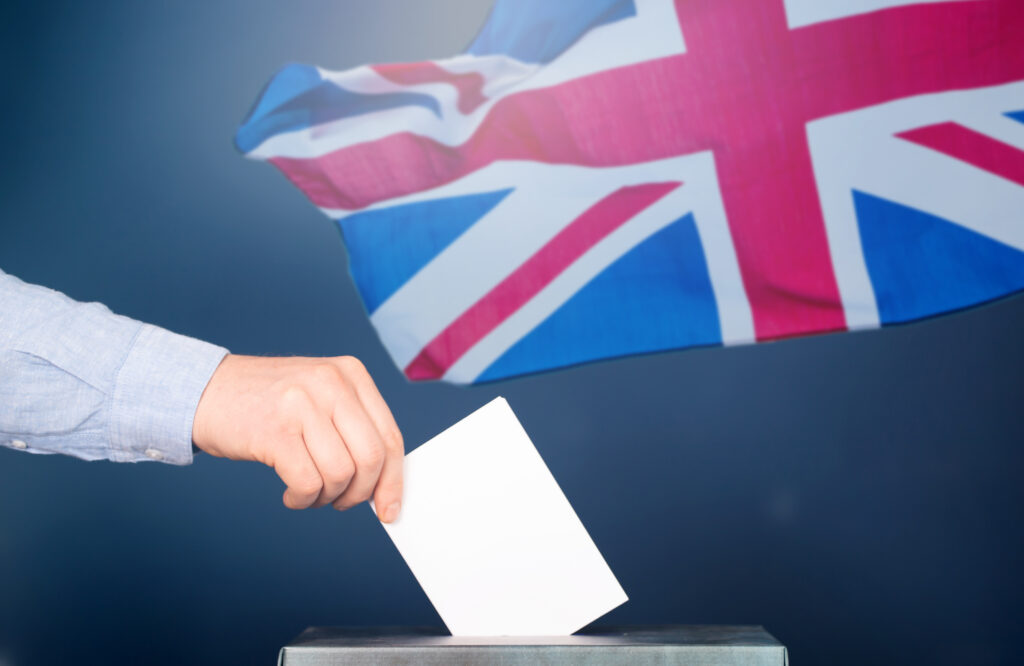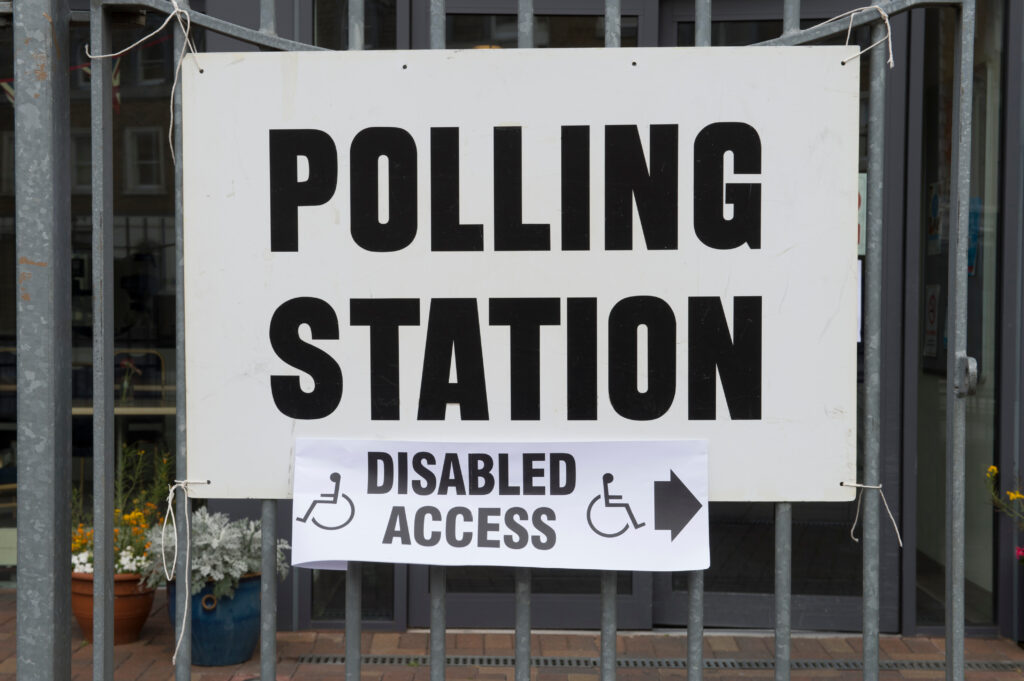
With the arrival of the UK General Election today, citizens nationwide are flocking to their local polling stations to exercise their rights as British citizens. However, not everyone is being granted the opportunity – with many disabled people across the Four Nations still unable to visit their local polling station due to inaccessibility.
Recently, a BBC article was widely circulated which reported that 27 year old Elin Williams, who is only able to see light, dark, and shapes without detail, says she has never been able to vote without help from someone else.
Elin’s particular disability is a degenerative eye condition called due to a degenerative condition called retinitis pigmentosa, and due to a lack of care (and most likely) understanding of her access requirements, she has felt rightly dehumanized and has had her rights as a voter infringed upon.
The Electoral Commission’s policy is clear, every UK Citizen has a right to vote both independently and in secret. But this rule is not being honoured sum two hundred years after the first public UK general election.
Take a look at the photograph to the right of this text box. It is a close-up photograph of a white laminated sign hung up by string on a fence in what we would assume to be a high street.
In bold, black, capitalised letters, the sign has text which reads “polling station”, with a small piece of paper sellotaped underneath it reading “disabled access”, also in bold, black, capitalised letters.
This photograph is quite indicative of our country’s carelessness when it comes to disability access. Firstly, capitalised text is considered inaccessible to people with visual impairments as they are used to reading words in lower case and can therefore better identify them. The signs also lack any form of tactile interpretation and the arrow implies a seperate entrance specifically for disabled people, which would prolong a voter’s journey and is a form of segregation.
There are few things more important to the fabric of our society than deciding who leads the country, so why are polling stations failing to keep up?
Direct Access has several visually impaired individuals on our team, including those with degenerative eye conditions. Keir, Josh, and Craig, were inspired to offer their thoughts on the matter;

Barriers to Democracy by Keir Welch
Everybody is aware of the suffragettes and their long, gruelling war with the governing authority to win women the same rights to vote in the UK as men, which didn’t come into effect until the general election which took place on the 30th May 1928 – therefore, as a woman in my early 30s, ethically I believe it to be so important that I exercise my right to vote at the upcoming general election on 4th July 2024.
I was born visually impaired, despite that, I am a functioning, thriving member of society. I have children that attend our local schools, make use of public transport, I not only engage, but build community groups, and I also work full time and pay my taxes just as everybody else does – I have opinions and beliefs on the world around me, and how it should be governed. So why, despite my own personal values and strong belief system, am I hesitant to vote this upcoming election day?
The UK Government don’t do enough to eliminate accessibility barriers on election day.
Elin Williams states in the BBC article that the lack of voting ballads in alternative formats is “dehumanising”, While I don’t agree with that sentiment per se, I do agree that it sends out a wider message that our votes just don’t matter to the governing body. Our only option at present, is to be accompanied by either a family member, friend, or a member of staff present at the polling station to assist us in accurately reflecting our vote– this can be really intimidating, especially in situations that create high levels of hostility, such as the referendum in 2016.
There’s no excuse. Offering polling ballads in alternative formats such as large print and braille is a very simple step in the right direction to overcome what is a much bigger issue. The lack of alternative formats is only a tiny factor in the barriers to democracy, and I’m personally very disappointed that we’re still discussing such matters in 2024.
My Experience of Polling Day as a Visually Impaired Voter by Josh Downing
As a severely sight-impaired person, voting has always been a challenge. Reading the comments from other sight-impaired people, included in the BBC News article, I agree with the comments about the voting system being old-fashioned. It certainly is and needs serious improvements in terms of accessibility. I don’t fully agree, however, with the comment of being dehumanised. I do feel as though the electoral commission needs to be doing much more to improve voting accessibility, and I can certainly appreciate the interviewees’ opinion however, the staff at the polling stations, have sympathised with the issues I’ve faced when voting in the past. They made me feel welcome, and tried to offer solutions, even though these reduced my ability to vote independently, the willingness to help was there. Rather, I feel as though we as a group are very much overlooked by the electoral commission. Reading the RNIB Cymru’s statistic about fewer than 1 in 5 sight impaired/blind people voting, I certainly echo the comment that ‘our votes don’t matter’ to the government as nothing has been done to tackle this issue.
I’ve been eligible to vote for 12 years, in this time, I don’t feel as though there has been any progression for a sight impaired person to cast their vote independently. The first time I voted, a staff member accompanied me in the booth. This was very uncomfortable, as I don’t think we shared the same political views. Therefore, during the referendum and 2017 elections, I employed my trusty handheld magnifier, which allowed me independence, however, meant, I felt the anxiety of ‘have I crossed the correct box’, because I couldn’t read the text, or line the box to candidate name properly. Stuck between anxiety or the inability to vote independently, I haven’t voted in subsequent elections.
However, this year, I would like to exercise my right to vote. I have searched my local authority website for information on voting accessibility, and there is no reference at all. None! In 2024, it is shocking that not just sight impairments, but disability, aren’t acknowledged on an authority website about voting.
A starting point for the electoral commission would be the inclusion of large print and braille ballots. It isn’t a fix for all sight-impaired people, however, would certainly decrease the amount of people who are ostracised from voting, and lay the groundwork for a permanent and viable solution for all sight-impaired people.
Disabled People’s Right to Vote – General Election UK 2024 by Craig Acton
Craig Acton, our visually impaired Accessible Media Lead; who is responsible for the design of our braille, easy read, and large print products – among other accessible formats, commented on the state of voting in the UK for disabled people in a video message – which we have linked below;